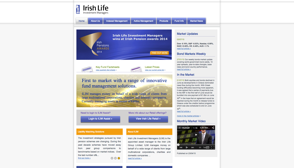Earlier in 2016 the Pensions Authority published a total of 6 Codes of Governance for Defined Contribution Schemes.
- Investing scheme assets
- Collection and remittance of contributions
- Managing conflicts of interest
- Trustee meetings
- Pension scheme governance
- Paying benefits.
In June 2016 they issued a further 3 codes covering the following topics:
- Keeping Records
- Data Protection
- Risk Management.
Keeping Records
Some of the key areas under these Codes include the practical aspect of keeping up to date records for both active and deferred members. Each pension scheme needs to keep complete and accurate records, which are periodically reviewed and checked, but it can often be difficult to trace deferred members so holding an email and or a contact phone number will help in this regard.
Trustees should work closely with their Registered Administrator to ensure there are robust processes and controls in place to track member investment choices and the processing of the DC contributions.
Trustees should take all reasonable steps, as required by law, to ensure the safety, privacy and integrity of data and, where appropriate, enter into a Service Level Agreement (SLA) with such third parties to protect the privacy and integrity of such data and any information supplied.
Data Protection
Trustees are data controllers and are responsible to obtain, store and process data in accordance with data protection legislation. Trustees must ensure data is kept secure from unauthorised access and disclose data only as permitted under the Data Protection Acts.
Risk Management
When it comes to the Code on ‘Risk Management‘ the Authority expects Trustees to have a risk management system in place for their scheme which includes strategies, processes and a risk register to record all scheme risks.
Full and comprehensive details of all the Codes of Governance issued to date can be found on the Pensions Authority website.
The Pensions Authority indicated they may issue some additional Codes later in 2016.
They have advised these Codes of Governance set out the standards that Trustees will be expected to adopt to demonstrate their commitment to serving the best interests of members and beneficiaries.
The Codes are not statements of the law and there is no penalty for failing to comply with them. The Pensions Authority Codes don’t intend to prescribe the process for every possible scenario, but to indicate behavior, activities and control processes that are most likely to deliver good member outcomes.
The DC codes set out the Authority’s view of good practice in the area of governance. Any alternative approach to that appearing in these Codes of Governance will nevertheless need to meet the underlying legal requirements of the Pensions Act and Regulations, and a penalty may be imposed if these requirements are not met.
Irish Life will update you as and when any further Codes are issued.
If you have any questions please contact your Pension Consultant or Irish Life Account Manager.









